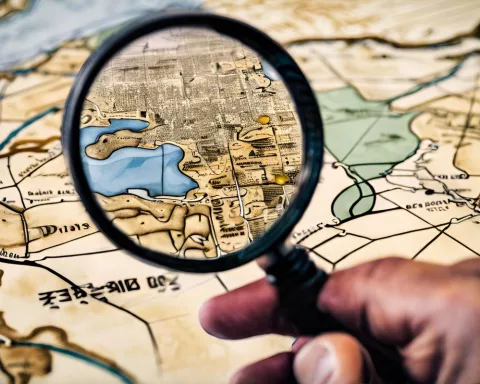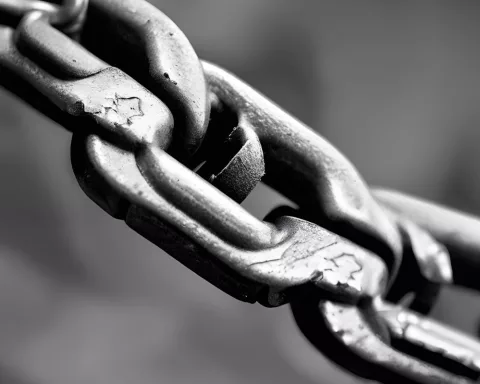Miss Albany became famous after her uncle, a professional photographer, took captivating pictures of her holding an Albany bread loaf, which went viral on social media. However, her uncle later criticized the commercial use of her fame, clarifying that they received no compensation. The saga of Miss Albany serves as a depiction of the power of social media, the complexities of corporate ethics, and the potential of photography for social commentary and change.
Who is Miss Albany and why did she become famous?
Miss Albany, also known as Lethkukhanye Mjaji, became famous after her uncle, a professional photographer, took captivating pictures of her holding an Albany bread loaf. The pictures went viral on social media, leading to gifts from Albany and other companies. However, her uncle has since criticized the commercial use of her fame, clarifying that they received no compensation. Despite the controversy, the story of Miss Albany serves as a testament to the power of social media and the potential of photography for social commentary and change.
In our digital day and age, the influence of social media is indisputable, often becoming the propellant behind captivating narratives that resonate with many. The story of three-year-old Lethkukhanye Mjaji, affectionately known as Miss Albany, is one such narrative. This young girl’s rise to stardom started when Lungisani Mjaji, her uncle and a professional photographer hailing from KwaNongidi in KwaZulu-Natal, took and shared captivating photographs of her holding an Albany bread loaf.
The pictures were so captivating, they invoked an immediate and significant public reaction. Albany, the bread company, recognized the potency of these pictures by visiting the young girl, bringing gifts and additional loaves of bread – a story confirmed by The Citizen. The Umuziwabantu Municipality also contributed, offering a cheque for R5000 to young Lethukukhanya. Parmalat, another food company, announced via social media they would deliver 100 litres of custard to the child.
Unveiling the Other Side of the Story
However, a different narrative unfolds in a recent social media post by Lungisani on X, a platform formerly known as Twitter. His words serve as a critique of the commercial use of his niece’s sudden fame. He clarified that no compensation was received “from that Albany thing”, debunking the notion that they profited from the situation. Despite this lack of financial gains, Lungisani continues to create captivating pictures and meets his niece’s needs with the resources at his disposal.
Lungisani’s journey in photography is marked by his commitment and passion. This year, he has partnered with Nikon South Africa for workshops and content creation. The support from Nikon aids him in making way for the new generation of photographers, a dream that Lungisani cherishes deeply.
Public Call for Corporate Accountability
Lungisani’s concerns regarding the absence of compensation have not fallen on deaf ears. BI Phakathi, an enigmatic philanthropist renowned for his viral videos of assisting random individuals, used his popular social media platform to encourage Albany Bread to “do the right thing”. In a world becoming increasingly conscious of corporate accountability, Phakathi’s call-out to Albany Bread serves as a reminder of the need to adhere to ethical practices.
Despite the controversy, Lungisani remains hopeful about the future. His commitment to his work and the support he offers for his niece is a testament to his resilience. As a professional photographer, he has demonstrated the power of visual narratives in shaping public opinion and provoking discussions on corporate ethics.
The Impact and Implications of Sudden Fame
As for Lethkukhanye, her rapid ascent to fame serves as a testament to the unpredictable nature of social media influence. Her story, although complicated, continues to be a beacon of hope and inspiration for many South Africans and has ignited a call for corporate accountability.
In the larger picture, the saga of Miss Albany, her photographer uncle, and the controversy that followed their unexpected fame serves as a depiction of the complexities of contemporary society. It highlights the power of social media, the complexities of corporate ethics, and the potential of photography as a tool for social commentary and change.
1. Who is Miss Albany and how did she become famous?
Miss Albany, also known as Lethkukhanye Mjaji, became famous after her uncle, a professional photographer, took captivating pictures of her holding an Albany bread loaf, which went viral on social media.
2. Did Miss Albany receive compensation for her sudden fame?
According to her uncle, they did not receive any compensation from Albany Bread or any other company, despite the gifts and additional loaves of bread they received.
3. What is Lungisani Mjaji’s role in this story?
Lungisani Mjaji is Miss Albany’s uncle and a professional photographer who took the captivating pictures that went viral on social media. He has since critiqued the commercial use of his niece’s fame and has partnered with Nikon South Africa for workshops and content creation.
4. What is BI Phakathi’s role in this story?
BI Phakathi is a philanthropist who used his popular social media platform to encourage Albany Bread to “do the right thing” and compensate Miss Albany and her family for their sudden fame.
5. What is the larger lesson behind the saga of Miss Albany and her photographer uncle?
The story highlights the power of social media, the complexities of corporate ethics, and the potential of photography as a tool for social commentary and change.
6. How has Miss Albany’s sudden fame impacted South Africans?
Miss Albany’s story has ignited a call for corporate accountability and serves as a beacon of hope and inspiration for many South Africans.












